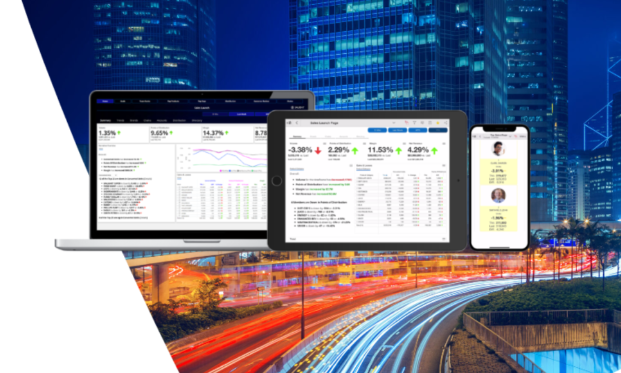Change has been a regular part of retailers’ lives for years now, beginning with the shift to ecommerce that accelerated during the pandemic. This year, the pace of change looks set to intensify and has the potential to set 2026 apart from even the most disruptive of recent years.
The widespread adoption of AI, together with customers’ escalating demand for seamless, speedy buying experiences, means retailers face almost unprecedented pressure to keep up.
Here we take a look at four trends that we think will shape retail in 2026 and that retailers will need to navigate in order to maintain currency and profitability.
1. AI adoption will take off
Any commercial forecast for 2026 has to start with the potentially revolutionary impact of AI. As Deloitte put it, “AI’s journey from pilot initiative to the heart of retail operations is accelerating, with an overwhelming majority of retailers either already using, or set to use, AI in the next 12 months for core operational capabilities.” They found that 48% of retailers are currently using generative AI for pricing and promotion optimisation, while 33% are using it for personalised recommendations and product search, with most others planning to use it for these tasks within a year. Other common use cases include demand forecasting and supply chain visibility.
If 2025 was the year when generative AI began to bed in, 2026 is shaping up as the year of agentic AI. Deloitte found that 68% of surveyed retailers were planning to deploy AI agents within one to two years. Most commonly, this will mean using a “proactive digital concierge” to curate and purchase products in response to customer prompts without human intervention at each stage of the process.
But the move to pervasive AI recommendations comes with warning signs as well. As shoppers begin to rely more heavily on AI agents to identify brands, traditional advertising spend could become less effective for retailers. As the National Retail Federation (NRF) in the US points out, “Whether or not a retailer’s brand shows up will depend on AI optimization — not just SEO or paid ads — flattening long-standing competitive advantages.”
Retailers also need to be mindful of trust and legal compliance implications. Privacy concerns around the information that agents gather and how that data will be used and stored need to be resolved, while the potential for malicious actors to exploit agentic commerce flows might curb the enthusiasm some shoppers feel for this new technology.
2. The need for speed accelerates
Customers’ expectations for speedy service and real-time engagement have been rising for a number of years now. In 2026, those expectations will be central to how shoppers judge their experience.
As Australia Post says, speed is now everything, with consumers expecting faster and faster deliveries and speed becoming a key driver of customer satisfaction. “Retailers who optimise fulfilment and embrace express options will win loyalty in 2026.”
Timeliness is making itself felt in other ways too. According to Inside Retail, “Customers are increasingly judging experiences by timing and context. A message that arrives too late, or ignores what they are doing right now, quickly feels irrelevant. Whether someone is browsing, comparing products, or waiting for an order update, they expect brands to respond in the moment, not hours or days later.”
Triquestra’s CEO, Greg Cantlon, agrees that meeting customers’ speed expectations will be a defining factor in retailers’ success this year, and the onus will be on them to anticipate and respond quickly to demand. “The consumer demand for speed will see retail cycles compress, meaning that retailers will have to adjust their offering on a daily or weekly basis. Speed won’t just be about how fast you process a sale; it will be about how fast you change a price, launch a promotion, replenish stock or identify a problem before it impacts your margins.”
All of this means that retailers need to understand their customers and what motivates them on a granular level so they can engage with them in near real-time.
3. Bricks and mortar rebounds
If there’s one thing that can be said about consumers in 2026 it’s that they are full of contradictions. They’ll prioritise price and value for money for one purchase and then splurge on another. And while they demand speedy deliveries and convenience, they are apparently also returning to the more leisurely shopping experience offered by malls and bricks-and-mortar stores in growing numbers.
In the US, for example, shopping mall traffic increased during 2025 and is set to grow further this year.
While on the face of it these trends seem to be at odds with each other, understanding consumer preferences explains this seemingly conflicting behaviour. Shoppers are willing to choose the channel that suits them best on any given day or for any given purchase. And at a time when traditional retail shopping centres are transforming themselves into destinations for entertainment and socialisation, customers are seeking out not only tactile product experiences but interaction.
As NRF says, “In a world increasingly starved for connection, human interaction and new experiences, shopping malls can bring together people and create spaces that are an antidote to screen time.”
For retailers, the secret to success will be understanding and catering to these preferences across all channels.
4. Data lays the foundation
As has been the case for a number of years now, understanding customers and offering them the experiences that meet their needs and expectations will require sound, accurate, real-time data.
That’s as true for understanding how to build a compelling in-store experience as it is for implementing AI agents and delivering timely personal engagement.
In fact, having high-quality data has never been more important than it will be this year. Without it, you can’t deliver the right message at the right time and curate a personalised shopping experience. In 2026, it could be the thing that sets you apart and makes your brand discoverable at a time when search methods are rapidly evolving.
And as Greg Cantlon says, the uncomfortable truth about AI is that it can only amplify the data you already have – good or bad. “If you want smarter ordering, better demand forecasting and personalised loyalty offers but you’re feeding AI with incomplete POS data, siloed systems and manual stock adjustments, then you won’t get the competitive advantage you’re looking for.
“Retail trends come and go. What lasts is the foundation you build beneath you.”
Want help to prepare for the future of retail?
If you’re looking for help to prepare for the data-intensive, speed-focused future that will shape customer interactions and meet their expectations, get in touch. We’d love to help you develop the solutions you need now and guide you to where you’re headed next.

































